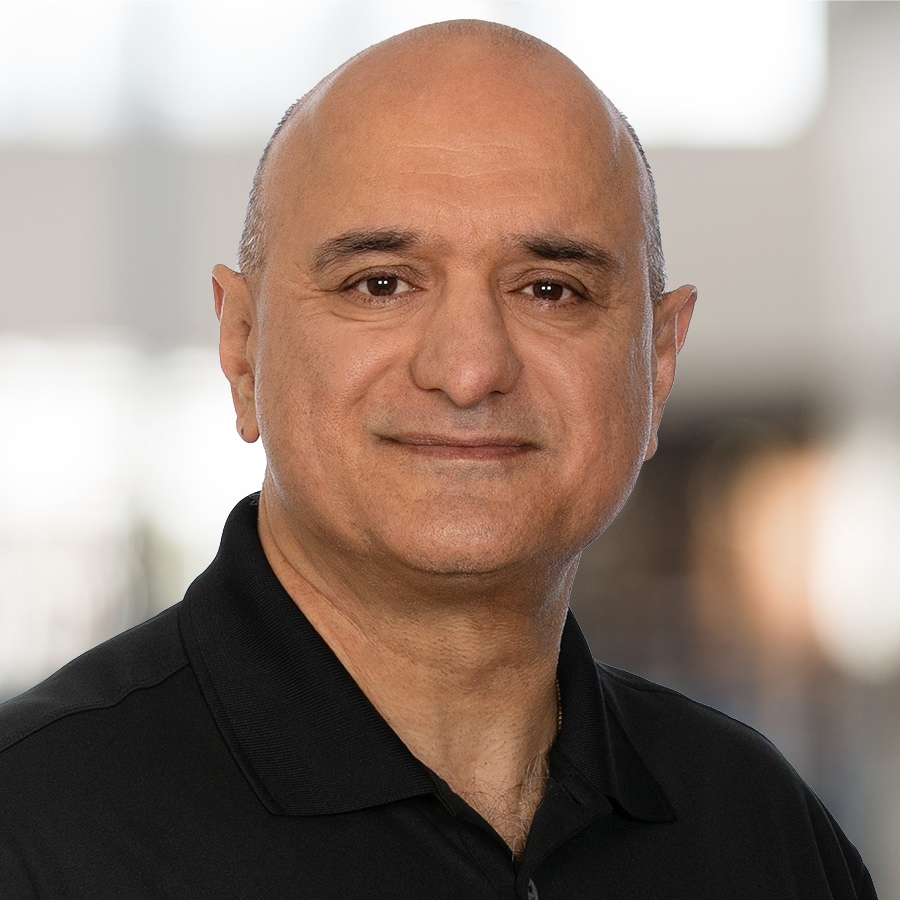TABLE OF CONTENTS
AI Will Enable Next-Generation Quality Systems
Applied and SC Solutions Partner on Real-Time Profile Control for 200mm CMP
Subject Matter Expertise is Critical for Smart Manufacturing Analytics
The Future of Power Needs to be Exotic
智能制造的 大数据分析: 设备和制程方面的专业知识是半导体制造分析解决方案的关键组成部分
A letter from Ali Salehpour - Powering faster, smarter, more connected solutions make customers successful
Senior Vice President and General Manager, New Markets and Service Group
Our world is rapidly evolving into a faster, smarter and more connected place. With a 5G cellular backbone on the horizon, the speed of communications and breadth of connectivity will both increase exponentially. At the same time, electronic equipment is becoming smarter in a myriad of ways: electric vehicles (EVs) are learning to be autonomous through sensors and cloud computing; artificial intelligence (AI)-based systems are beginning to automate complex manufacturing decisions; big data is driving a move toward predictive—even proactive— factory control; and the Internet of Things (IoT) promises to connect just about everything.

This issue of Nanochip Fab Solutions spotlights the many solutions Applied Materials is developing to help make our customers successful in this faster, smarter and more connected world. Our cover story on the future of power looks at the growth of compound semiconductors that support possibilities silicon alone cannot—including processing speeds up to 100 times faster. These compound semiconductors are also one of the fastest-growing markets, as the rise of 5G and smarter equipment revolutionizes power requirements.
But that’s not the only technical revolution featured here. You’ll learn how a group of automation engineers at Applied Materials is exploring the use of AI-based techniques in inline statistical process control (SPC) to either fully automate decision-making or augment human decision-making in the fab. These solutions will significantly improve the speed and quality of decisions, potentially translating into more than 600 hours of process time recovered per month for production, along with a further scrap reduction of approximately 10% from current rates.
Two articles co-authored by James Moyne, an associate research scientist at the University of Michigan, also examine the man-machine relationship, this time from the standpoint of human knowledge. These articles on big data analytics and subject matter expertise argue that analytics solutions for the semiconductor industry cannot be strictly data-driven, due in part to the complexity of equipment and process, meaning that equipment- and process expertise must remain a critical component of smart manufacturing.
An article contributed by Applied Materials’ Display Flexible Technology group showcases another revolutionary technology whose time will soon come: foldable phones. The article reviews a number of challenges facing developers, including battery life, form factor, manufacturing costs and price, along with Applied’s efforts to solve the most difficult problem of all: the development of displays that can withstand the stresses of frequent bending.
Needless to say, at Applied Global Services, we understand that making customers successful in a faster, smarter, more connected world must include service offerings that can keep pace. Rounding out this issue of Nanochip is the story of how AGS dramatically transformed its service supply chain by implementing new IT, updating distribution centers, hiring specially trained personnel and exploring the use of AI techniques to improve delivery performance. Driven by a large increase in long-term service contracts that require fast turnaround of spare parts, the improvements in Applied’s service supply chain operations are benefitting customers and field engineers worldwide.
The pace of change in the semiconductor industry is accelerating. By powering faster, smarter and more connected solutions that improve your yields, enhance your fab decisionmaking and increase your uptime, we are empowering you to succeed. Read on to learn more about what the future holds—and how we’re helping you get ready for it.
